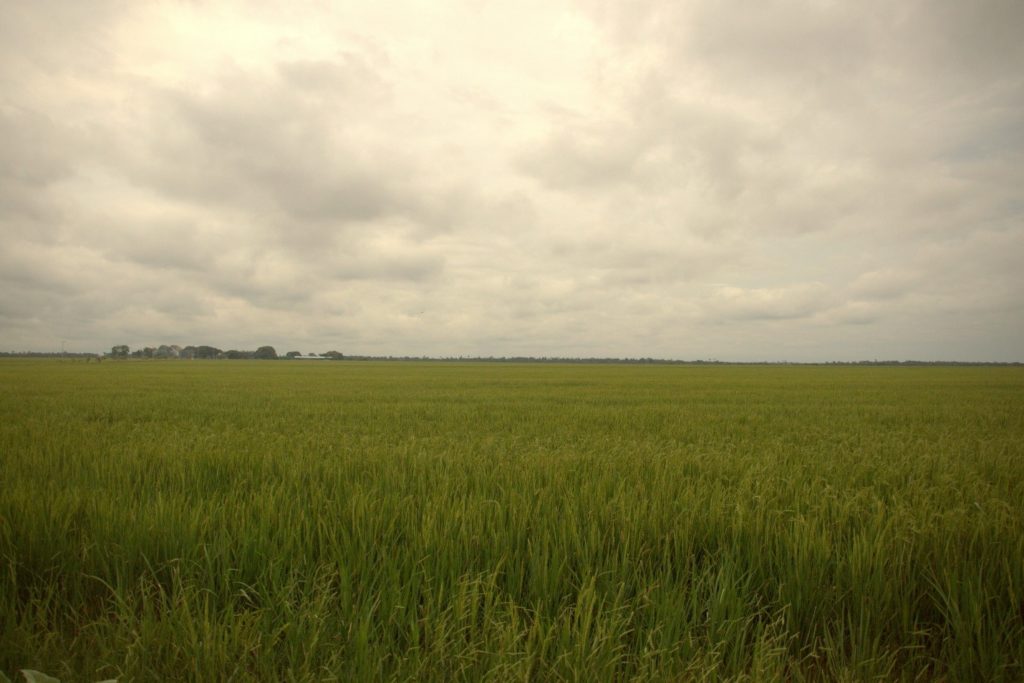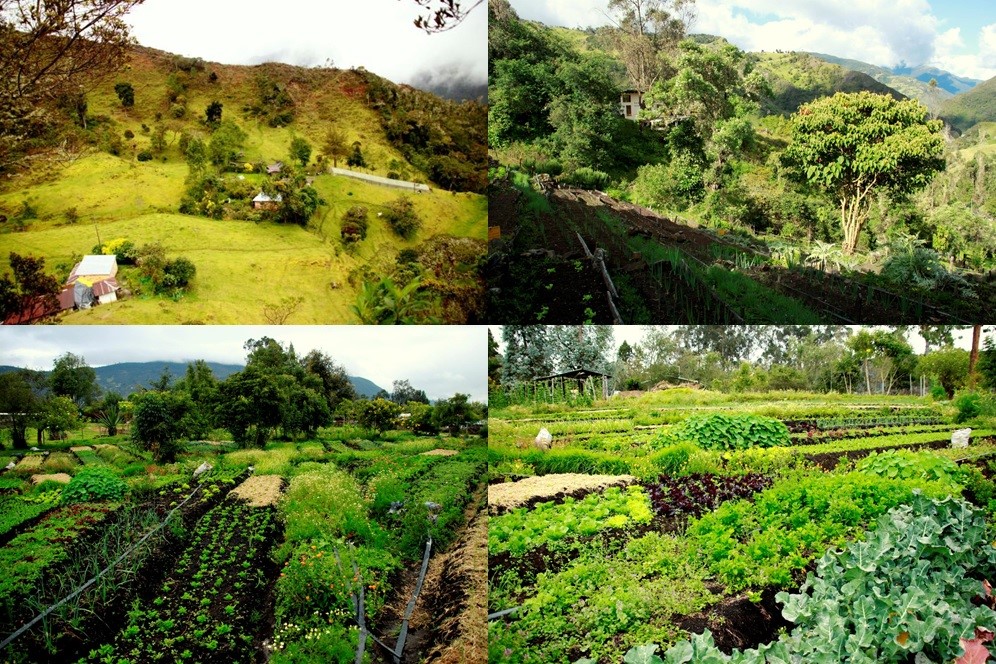Camila BENAVIDES1 & Stefan ORTIZ2
1Agroecologist, Research Associate and PhD Candidate, Social-Ecological Sciences Institute, Leuphana Universität Lüneburg-Germany
2Ecological Economist, Research Associate and PhD Candidate, Social-Ecological Sciences Institute, Leuphana Universität Lüneburg-Germany
The alarming fires in the lowland forests of Bolivia are often linked to the lack of control of the chaqueos (burning) to establish agricultural activities. Most of the fires are caused in areas where the country’s large-scale industrial agriculture has been established and continuously expanded. In fact, the Bolivian east has been suffering greatly from the latifundia’s appetite for land since the 1990s. Its expansion is rapidly transforming culturally and biologically diverse landscapes into homogenous monocultures, destroying ecosystems and displacing indigenous and peasant family agriculture.
Ironically, the latifundia agribusiness still presents itself as a generator of jobs and a producer of food, defending the implementation of laws that favor its expansion. One of the strongest arguments for the expansion of the agro-industrial frontier is its supposed contribution to the country’s Food Sovereignty and Security. Despite this narrative, the reality is different if one considers that this sector is oriented towards the export of a few primary agricultural products, such as soybeans, which do not contribute to Bolivia’s food supply and maintain an intensive agricultural model. In terms of employment, the contribution of export agribusiness is not evident, and rather, as Colque (2020) has pointed out, everything would indicate that it is peasant and indigenous family agriculture that employs the greatest number of rural workers.

In fact, it is fundamental, first, to understand what Food Sovereignty is in order to be able to question why conventional agribusiness shelters itself in this important concept born from peasant social organizations in Latin America. By definition, Food Sovereignty explicitly rejects intensive agriculture that is highly dependent on external inputs, employed by an agro-industry that makes farmers dependent on genetically modified seeds and on pesticides, fertilizers and machinery, while burdening them with debt. In these intensive systems, peasants lose control over how they farm, and are stripped of their link to land, identity and culture; which are also fundamental elements of Food Sovereignty. At the same time, the promotion of the intensive use of agrochemicals results in soil erosion, due to its overexploitation and deforestation, causing irrecoverable losses of biodiversity, water and fertile land (Crespo, 2020), in a vicious circle that is tried to hide with speeches and false promises of employment, sustainability and progress.
These environmental and social costs of latifundia expansion fall unjustly on all the people and threaten Food Sovereignty. This concept, unlike “food security”, promotes not only access to food but also control over production systems, privileging agricultural methods that protect the environment and health. It thereby defends social and environmental justice and not the profits and power of an agro-industrial sector heavily concentrated in a few hands.
Although the Political Constitution of the Plurinational State of Bolivia advocates for the right to Security, Food Sovereignty and the rights of indigenous peoples and peasants (e.g. Art. 309, 405), at the same time governments have designed laws tailored to the needs of latifundia agribusiness and its appetite for land, as the Fundación TIERRA has warned.Incendiary” laws, facilitate deforestation (e.g. laws 337 of 2013, 502 of 2014, 739 and 741 of 2015), reduce control over genetically modified seeds (D.S. 4232 of 2020) and favor the monopolization of public lands. These were promoted by the de facto government of Añez and by other governments, including that of Morales, blatantly justifying themselves in the false contribution to food security and sovereignty. In reality, they respond to political transactions that use the flexibilization of land clearing to reconfigure the political-electoral map in favor of the government of the moment.
Family agriculture in Bolivia has historically been submitted to a context of precariousness and marginality (Colque et al, 2015). Its great heterogeneity is due to its capacity to adapt and transform in the midst of difficulties, thanks to which it manages to produce around 65% of the country’s food (Cartagena, 2020). In particular, peasant and indigenous family agriculture has managed with difficulty to connect with food and labor markets (Colque et al, 2015), contributing to real Food Sovereignty, with production systems that maintain a diversity of foods and, at the same time, contribute to regenerating soils and ecosystems, valuing peasant knowledge and sustaining their economies. Their agricultural systems have been widely documented and supported by institutions such as CIPCA, ECOTOP and TIERRA, among others, in agroforestry systems in the east of the country and in the crops of the La Paz and Sucre Valleys. Based on local knowledge, in dialogue with agro-ecological science, they produce fruits and vegetables for the cities and the countryside. They have also developed innovations and value chains in export products such as cocoa and coffee. There are multiple experiences that contribute to balancing food production with environmental care, for example, by promoting bird conservation (see, for example: WCS’ ecological coffee project)
Therefore, only an agroindustry that is not represented by latifundia and that recognizes the importance of harmonizing environmental conservation with food production can promote equitable alliances based on Food Sovereignty and access to fair markets for indigenous and peasant family agriculture. These alliances must be based on the recognition of the fundamental contribution of peasant and indigenous family agriculture to food and rural employment in Bolivia (Colque et al 2015). Access to markets and the generation of value must guarantee the participation of producers’ productive organizations with a guarantee of fair prices and equity in relations, without compromising family farmers’ land ownership, or ecological sustainability.

Although in the axes of Food Sovereignty proposed by the peasant organization La Via Campesina, a perspective of commercialization in local markets and self-supply of peasant families is promoted, it is fundamental to rethink food and economic systems that allow peasants to live a dignified life, but challenging the current hegemonic economic models and not leavin aside environmental sustainability, which is fundamental for our survival. Furthermore, it is urgent to analyze the alliances and cohesions that are emerging between non-latifundia agribusiness and family agriculture in the midst of highly precarious agrarian economic contexts, in order to evaluate in what sense they represent real alternatives.
We must ask ourselves then, how far are Bolivians willing to allow latifundia to devour land and forests and establish a homogenous landscape of monocultures? This will depend on first understanding what Food Sovereignty really means and defending the principles that underlie the policies promoted by indigenous and peasant peoples in the configuration of the Plurinational State of Bolivia. By doing so, we can prevent these struggles from being written only on paper, or in scattered initiatives.
References
Cartagena, Pamela. 2020. La producción campesino indígena: soporte alimentario y de salud integral en tiempos de coronavirus. CIPCA.
Colque, Gonzalo. 2020. ‘Detrás de la expansión de la frontera agrícola: sostenibilidad económica, social y ambiental del agro-modelo cruceño’. En: Friedrich et al 2020. Situación, perspectivas y desafíos económicos y socioambientales de la agroindustria en Bolivia.
Colque, G., Urioste, M., Eyzaguirre, J. 2015. Marginalización de la agricultura campesina e indígena. Dinámicas locales, seguridad y soberanía alimentaria. La Paz: Fundación TIERRA.
Crespo, Miguel A. 2020. ‘Contexto global de la agricultura’. En: Friedrich et al 2020. Situación, perspectivas y desafíos económicos y socioambientales de la agroindustria en Bolivia
Forum for Food Sovereignty. 2007. Declaration of the Forum for Food Sovereignty, Nyéléni, Mali. Forum for Food Sovereignty, February 23-27, 2007, Nyéléni Village, Sélingué, Mali. http://www.nyeleni.org/spip.php?article290 (Accessed April 14, 2020).

